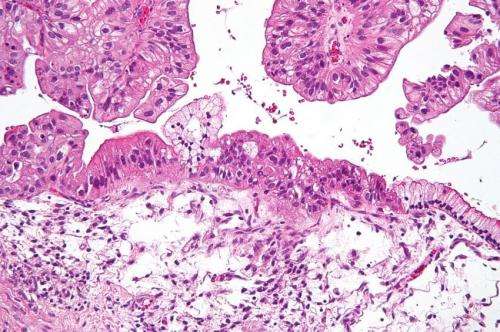Uncovering the mechanisms that support the spread of ovarian cancer

A very high mortality rate is associated with ovarian cancer, in part due to difficulties in detecting and diagnosing the disease at early stages before tumors have spread, or metastasized, to other locations in the body.
During metastasis, ovarian tumor cells break away from the original tumor site into the abdominal cavity, where immune cells called macrophages help them survive and migrate to other locations.
In this issue of the JCI, research led by Wang Min at Yale University describes how a subtype of macrophages communicate with and support tumor cell growth to drive metastasis in ovarian cancer. Researchers determined that tumor cells attract macrophages by releasing cytokines.
These macrophages then secrete growth factors that help the tumor cells multiply to form tumor cell spheroids. In a mouse model of ovarian cancer, inhibiting these growth factors reduced the formation of tumor cell spheroids and ovarian tumor growth.
These findings add to an understanding of the early stages of ovarian tumor metastasis, which may lead to the development of more effective early diagnostic approaches as well as therapies to prevent metastasis.
More information: Mingzhu Yin et al. Tumor-associated macrophages drive spheroid formation during early transcoelomic metastasis of ovarian cancer, Journal of Clinical Investigation (2016). DOI: 10.1172/JCI87252

















